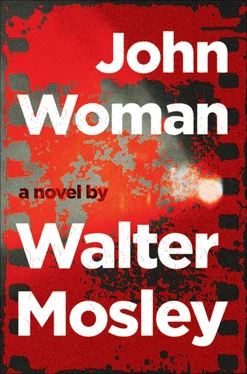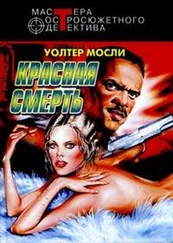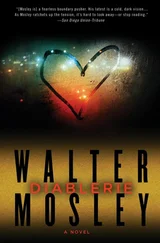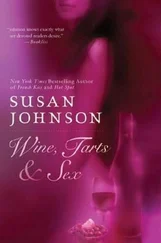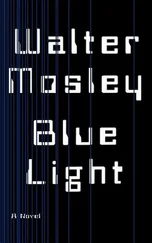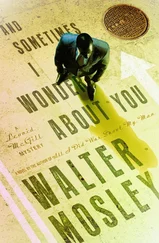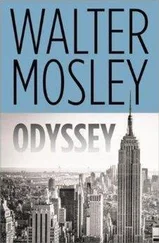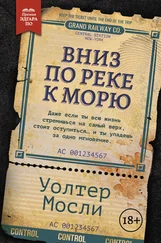“I think I’d question the first and believe the second,” Mister said.
A few students laughed.
“But if you found a letter in her bureau drawer where this friend had confided that the greatest sorrow in his life was that they had never been lovers, then you would know a truth beyond whatever answer she gave. Because she saved that letter, the penned emotion of your friend and the fact that their intimacy was beyond any mere physical act would be something that could not be questioned.”
“Yeah,” Mister said nodding in tiny arcs, “that’s true.”
“That’s how I found out about my father,” Christian Van Dyne said aloud. “I found a journal in a suitcase at the back of my mother’s closet. My real father was a teenager when he impregnated her. She said that he was just a boy but that he was also the first man she’d ever loved.”
“Do you want to come have dinner?” John asked Dawn on the phone that evening.
“No,” she said.
“Why not? I won’t put my hand on you again.”
“I know, but...”
“What?”
“I never thought my life was fake until your class,” she said. “I mean I suspected it but no one had ever put it into words. It’s wonderful, like reaching into your pocket and coming out with twenty dollars you forgot you had. But it hurts me to think the way you do. It feels like something tearing inside. That’s what it feels like in class and when we’re together too.”
“But what if I said I needed you?” he asked.
“You have my phone number. You can call me anytime, day or night.”
The next Monday the class discussed socialism and capitalism. John proposed that only bees, termites and ants were true socialists and that, fundamentally, capitalists got it wrong because the one true fact about wealth was that it was finite like the material universe; and therefore the accrual of wealth did double duty as an engine of poverty.
He tried to engage Christian after the class but the young man, his son, said, “I can’t talk to you.”
“Then why are you taking the class?” John asked.
“I only want to learn about you,” Chris said. “I want to see how you talk and think. But if I get to know you — personally — then everything I know will... I just can’t.”
“I’m afraid,” John said to Dawn Langthorpe on the phone at 3:47 the next morning.
“Afraid of what?” the drowsy class monitor asked.
“I’m coming to realize that this class has a purpose for me, something I hadn’t planned.”
“What kind of purpose?”
“A lecture I’m building toward. A lecture that could kill me.”
“How could a lecture do that?”
“Ideas are the most dangerous products of humankind,” he said. “What we think and what we say are the foundations of our demolition.”
“But how?”
“There are people who don’t want me to identify them in public. They want to hide in plain sight.”
“Then don’t do it.”
“I don’t know if I can avoid it,” he said. “The one thing I’m sure of is that our purposes are not necessarily our intentions.”
“You mean you can’t help yourself?”
“Exactly,” John said. “We, all of us, are following a path that is as certain as the history we can neither know nor escape.”
“Do you want me to come over?” Dawn asked.
“No. I called because I needed to tell someone I was afraid, in order to know it myself. But if you came here fear would turn into friendship.”
“Maybe that would be better.”
“It would be like treating cancer with heroin.”
“At least you’d get rid of the pain.”
“When you’re about to die the pain is all you have.”
“I have been studying history since before I can remember,” John said to the full complement of the SOS seminar (the acronym arose out of class discussion). “My father was an autodidact—”
“A what?” Talib Mustafa blurted.
“He taught himself to read and then followed a wholly unique path to learning.”
“How you teach yourself how to read?” the ex-con challenged.
“How does a man who lived by violence see one day that he doesn’t have to do that?”
“That’s not the same,” Mustafa argued.
“Everything inside the sphere of human perception is expressed by instincts, symbols and words,” John said easing into the sidetrack. “Even those things that we don’t yet understand. Whenever my father saw a written word he asked what it sounded like. He collected these sounds and meanings like a crow stealing shiny trinkets lying in sunlight.”
“What’s that got to do with me?” Mustafa asked.
“You lashed out again and again until someone expressed to you by imprisonment that you were wrong. You gathered this lesson to your heart and it nestled there like my father’s words.”
Mustafa, who had not spoken until then, sat back with a puzzled look on his dark, scarred face.
John waited to see if the man had more to say. When he didn’t the professor returned to his spur-of-the-moment lecture.
“As I was saying, my father was an autodidact who lectured me every night on his chosen field, history. I was studying Vico and Herodotus, Toynbee and Marx before I could read. Knowledge has been colonized by the university but a college degree has no claim on information much less understanding.
“Mr. Marsters,” John then said to the solitary white member of the SOS.
“Yes, Professor?”
“I am about to broach a topic that might make you uncomfortable. But understand that you are not the subject of what I have to say.”
“Okay,” the veteran said with a questioning note in the word.
“I do not believe in the existence of white people,” Professor John Woman said. “I don’t believe in race in general. The French, I know, come from France and the Pygmies from down around Congo. Likewise the Swedes, Danish, Spaniards and Slavs have specific geographic and cultural origins. The Jews, Catholics, Muslims and Buddhists have sacred texts that name them giving a notion of mystical historicity to their claims on identity. But what about so-called white people? Do they come from Whiteland? Do they have a more or less specific genesis, language, religion or culture that defines them? Or is it just the fact that a group of people found themselves slaughtering red and brown natives while living off the fruits of so-called black slavery?”
The class took up the lecture from there and John mostly listened.
“I’m not white,” Craven Marsters announced. “This sheet of paper here is white. Zombies on that TV show are white. My father told me that I’m Anglo-Saxon. Where he came from the Irish people were another race.”
“Yes,” Dawn said on the phone that night, “you can stay with me for a while. There’s a foldout bed in the sofa in the living room. Maybe you could explain to me why you think your words are going to kill you.”
John’s next lecture was on the nature of love.
“Love changes us,” he said to twenty-eight of the thirty SOS crew. “We meet someone who seems to know us, wants to know us or maybe doesn’t care about what everyone else thought we were. We feel more alive, less afraid, drunk on the feeling of forever.
“That’s personal love, one-on-one love, the passion of a mother for a child that knows only her. But the emotion runs deeper than that. As a matter of fact this poorly defined inescapable and incomprehensible emotion is one of the few touchstones that push our awareness back beyond the border of humanity.
“My communist bees feel a love for their queen beyond any care for their own survival. The wild dogs of India will hunt down a tiger without concern for any individual’s safety. The migration of geese is constructed of the ecstasy of flight not as the one but as the many on a journey the magnitude of which dwarfs our space stations or flights to the moon.
Читать дальше
